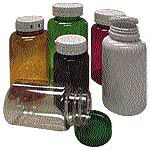|
   Spurious drugs - A blot on India Spurious drugs - A blot on India
Support from public in general and NGOs in particular would go a long way in posing a deterrence to the fake dealers, suggests Harinder S Sikka
INDIA is seen as a major threat by the global players in the area of providing high quality drugs at extremely low costs. This was one of the major reasons behind the US Government’s unwillingness to sign the TRIPs Agreement. Given the strength of generic giants like India and Brazil, many American pharmaceutical companies felt that in times to come, they would stand to lose major segment of their profitable business to their counterparts from India. To a great extent, these global players have done their homework rather well. For example, over 75 per cent of the drugs are likely to go off patent by 2005. In the absence of new drug discovery, increasing competition and concerns raised by the NGOs and US senior citizens’ forums, the MNCs’ profit graph is beginning to look extremely vulnerable with its cash cows consistently exiting their stables. India on the other hand, is gaining currency in all quarters. In a recently concluded conference in the US on globalisation, justice and healthcare, one participant after the other either looked forward to cheaper drugs from India or showed concern about the high drug costs in the US markets. <!--[if !vml]--><!--[endif]-->Whilst the world is praising India, we have our own cup of woes. India’s share in sub-standard drugs is alarmingly high. It may not be possible to put across an exact figure or percentage of the market share, it is yet an established fact that drugs procured by the government agencies under the prevailing tender system has too many anomalies that needs to be addressed post-haste. By purchasing drugs and formulations under the archaic (L-1 criteria) tender laws and procuring large quantities, often at prices below the cost of the raw material, the government is actually encouraging manufactures of sub-standard drugs. The issue has also been repeatedly raised by both importing countries as well as the Indian public at large without receiving its due attention. Notwithstanding reservations on the actual level of problem from various drugs regulators, public at large lacks faith in the supplies made under the government procurement system. Very recently, Indian Express had reported government of Jharkand having caught a huge consignment of anti-TB drugs, which were found to be spurious. Ironically, the prevailing system could neither stop the company from functioning nor it has a mechanism by which the said drug sold across the country through the extensive retail network could be recalled. This is not a case in isolation. It has happened before and it will continue to thrive so long these fly-by-night operators are allowed to get away with the blue murder. The Health Minister’s initiative together with Mashelkar Committee report on the subject, recommending death penalty in extreme cases may sound harsh to some. However, if implemented, it will have a saluting effect not only within the country but also in uplifting the Indian prestige overseas. India has too many strong points in its favour to allow the spurious drugs stigma to be attached to its name. For example, it has a mature industry with manufacturing base that has a capacity to produce drugs of world standard. It boasts of rich base of traditional knowledge in therapeutics, ie, ayurveda, sidha and unani and successful experience in innovative process chemistry. More importantly, it has access to brain bank of internationally acclaimed Non Resident Indians S&T professionals and well developed engineering base to produce a wide range of pharmaceutical equipment and machinery. Its pharma industry has expertise to blend knowledge of traditional medicines with modern science. It also has competence in molecular biology, immunology and biotechnology and is beginning to put on map a wide range of its very own drugs to counter a vast range of diseases. All it urgently needs is a delivery machinery that can effectively provide checks & balances and stricter laws against the spurious mafia that is otherwise according opportunity to the select few to cast aspersion on the quality of drugs originating from the Indian shores. To start with therefore it is of paramount importance that the Ministry of Health upgrades its drugs procurement programme with an increased emphasis on quality and high standards becoming first qualitative requirement. The new laws should effectively enforce a discipline whereby a spurious drug manufacturer or trader is unable to return to his trade after getting exposed. As in the case of customs and other allied services, there could be an incentive for a drug inspector involved in exposing the mafia. Support from public in general and NGOs in particular would also go a long way in becoming a major roadblock for the fake dealers. If such an arrangement can be delivered and sustained, it shall go a long way in assuring India its rightful place in the world map. Besides increased revenue, India then would also assure itself a healthy citizenry marching our nation to the farther horizons. The author is the Senior President - Corporate, Nicholas Piramal India Limited, and he could be reached at
This e-mail address is being protected from spam bots, you need JavaScript enabled to view it
|